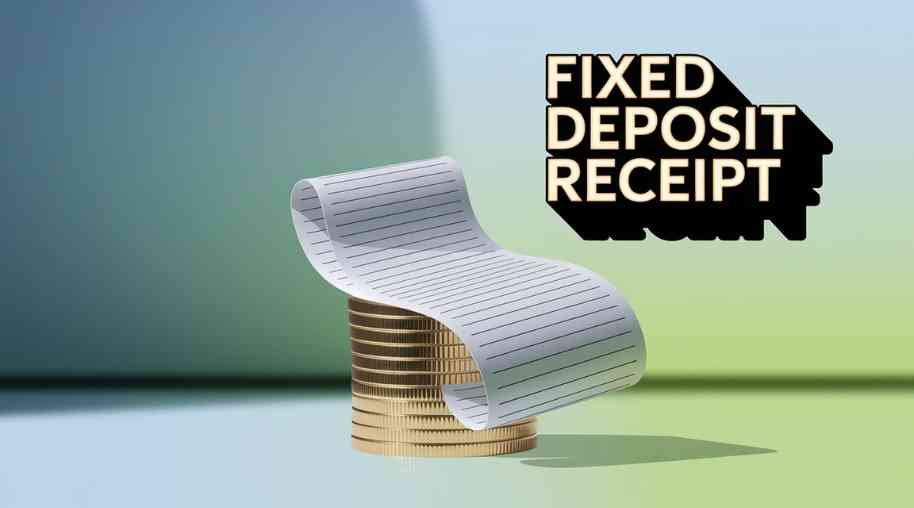FDR Full Form-Fixed Deposit Receipt
by Shashi Gaherwar
0 2048
Fixed Deposit Receipt (FDR): Benefits, Features, and How It Works
Introduction
A Fixed Deposit Receipt (FDR) is an official document issued by banks and financial institutions when an individual or business deposits money in a Fixed Deposit (FD) account. This receipt serves as proof of investment and contains details such as the deposit amount, tenure, interest rate, and maturity date. FDRs offer a secure and stable investment option with guaranteed returns, making them popular among investors seeking low-risk savings solutions.

What is a Fixed Deposit Receipt (FDR)?
An FDR is a confirmation document given to the depositor after opening a Fixed Deposit account. It signifies that a certain sum has been deposited for a fixed tenure at a predetermined interest rate, which remains constant throughout the investment period.
Key Features of Fixed Deposit Receipts
- Guaranteed Returns: Fixed Deposits offer assured interest earnings over the chosen tenure.
- Fixed Interest Rate: The interest rate remains unchanged throughout the deposit period.
- Flexible Tenure: Deposit periods range from 7 days to 10 years, depending on the bank’s policies.
- Loan Against FDR: Investors can avail up to 90% of the deposit amount as a loan without breaking the FD.
- Premature Withdrawal Option: Though FDs have a lock-in period, premature withdrawal is allowed with some penalty on interest.
- Safe Investment: Since FDs are not market-linked, they are risk-free compared to stocks and mutual funds.
- Tax-Saving Options: Tax-saving FDs offer deductions under Section 80C of the Income Tax Act.
How Does an FDR Work?
- Deposit Money: The investor deposits a lump sum amount in a Fixed Deposit account.
- FDR Issued: The bank provides a Fixed Deposit Receipt containing key details:
- Account holder’s name
- Deposit amount
- Interest rate
- Tenure (duration)
- Maturity date
- Terms and conditions
- Interest Accumulation: The deposit earns interest at the agreed rate.
- Maturity & Withdrawal: On maturity, the investor receives the principal + interest. Alternatively, they may choose auto-renewal.
Types of Fixed Deposit Receipts
- Regular Fixed Deposit: Standard FDs offering fixed interest for a chosen period.
- Tax-Saving FD: Lock-in of 5 years, eligible for tax deductions under Section 80C.
- Senior Citizen FD: Higher interest rates for individuals above 60 years.
- Recurring Deposit FD: Allows monthly deposits with FD-like returns.
- Flexi Fixed Deposit: Linked to a savings account for liquidity and better interest.
Benefits of Fixed Deposit Receipts
- Risk-Free Investment: Unlike stocks, FDs offer safety and security.
- Higher Interest Rates than Savings Accounts: FDs provide better returns than regular savings accounts.
- Loan Facility: Use the FDR as collateral for secured loans.
- Choice of Interest Payout: Opt for monthly, quarterly, or yearly interest payouts.
- Customizable Tenure: Investors can choose a tenure that suits their financial goals.
How to Apply for a Fixed Deposit Receipt?
- Choose a Bank/NBFC: Compare interest rates and tenure options.
- Submit Documents: Provide KYC documents (ID proof, address proof, and PAN card).
- Deposit the Amount: Transfer funds online or offline.
- Receive the FDR: The bank issues an official Fixed Deposit Receipt.
Important Considerations Before Investing in FDs
- Compare Interest Rates: Across different banks.
- Check Premature Withdrawal Penalties: To avoid unexpected charges.
- Opt for Tax-Saving FD: If looking for tax benefits.
- Consider Auto-Renewal: For continued benefits.
A Fixed Deposit Receipt (FDR) is an essential document that provides security for your FD investment. It ensures safe and guaranteed returns, making it a preferred option for risk-averse investors. With various FD options available, choosing the right tenure and interest payout structure can maximize financial benefits.
Further Learning Resources
If you’re passionate about building a successful blogging website, check out this helpful guide at Coding Tag – How to Start a Successful Blog. It offers practical steps and expert tips to kickstart your blogging journey!
For dedicated UPSC exam preparation, we highly recommend visiting www.iasmania.com. It offers well-structured resources, current affairs, and subject-wise notes tailored specifically for aspirants. Start your journey today!

Share:








Comments
Waiting for your comments